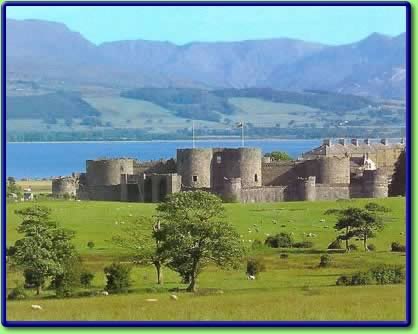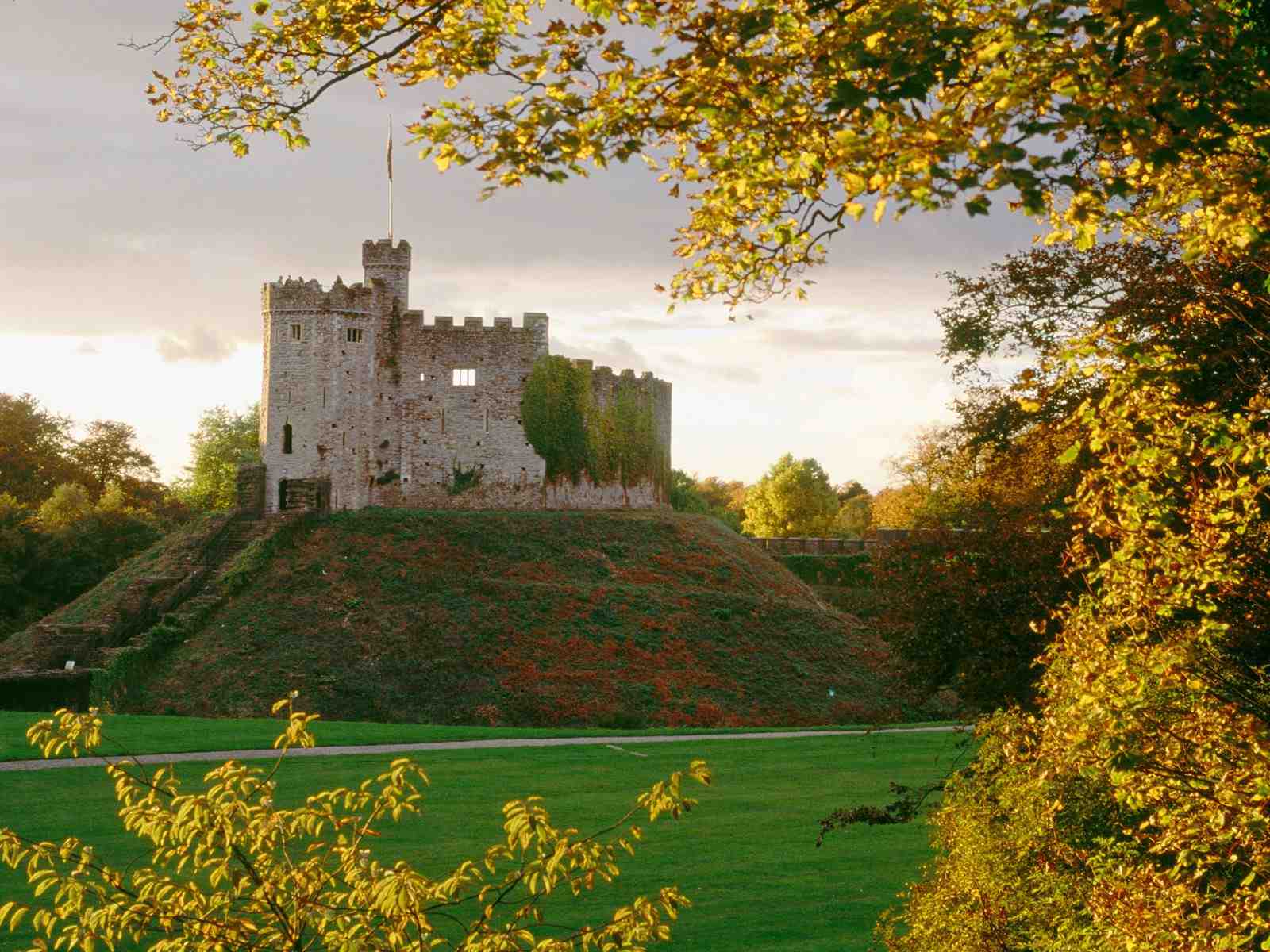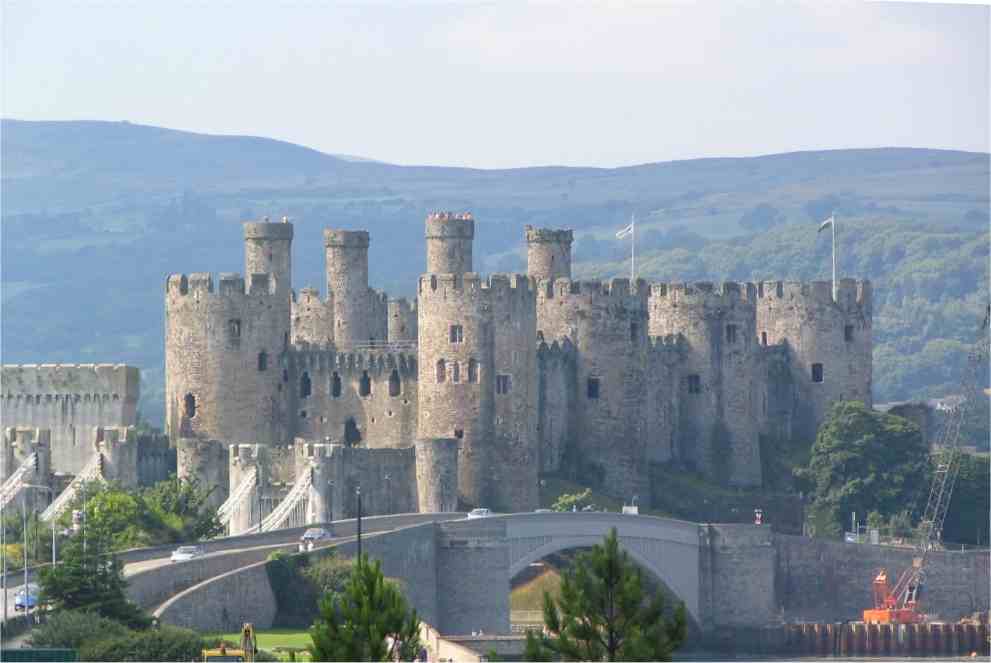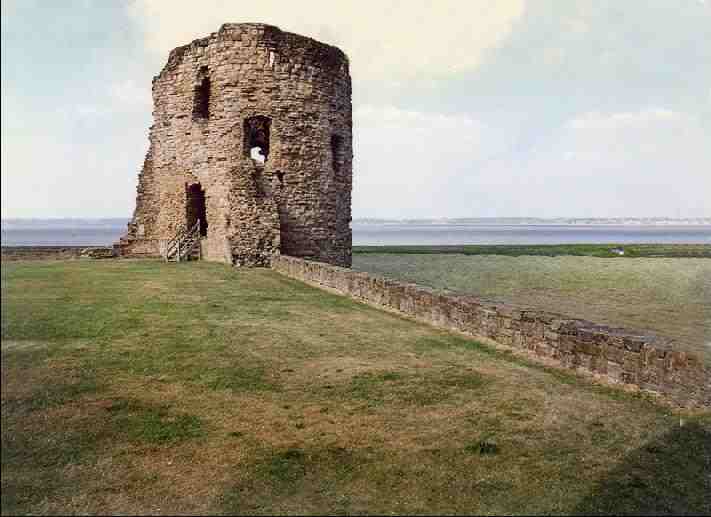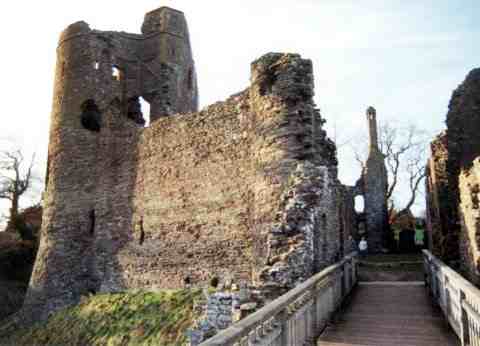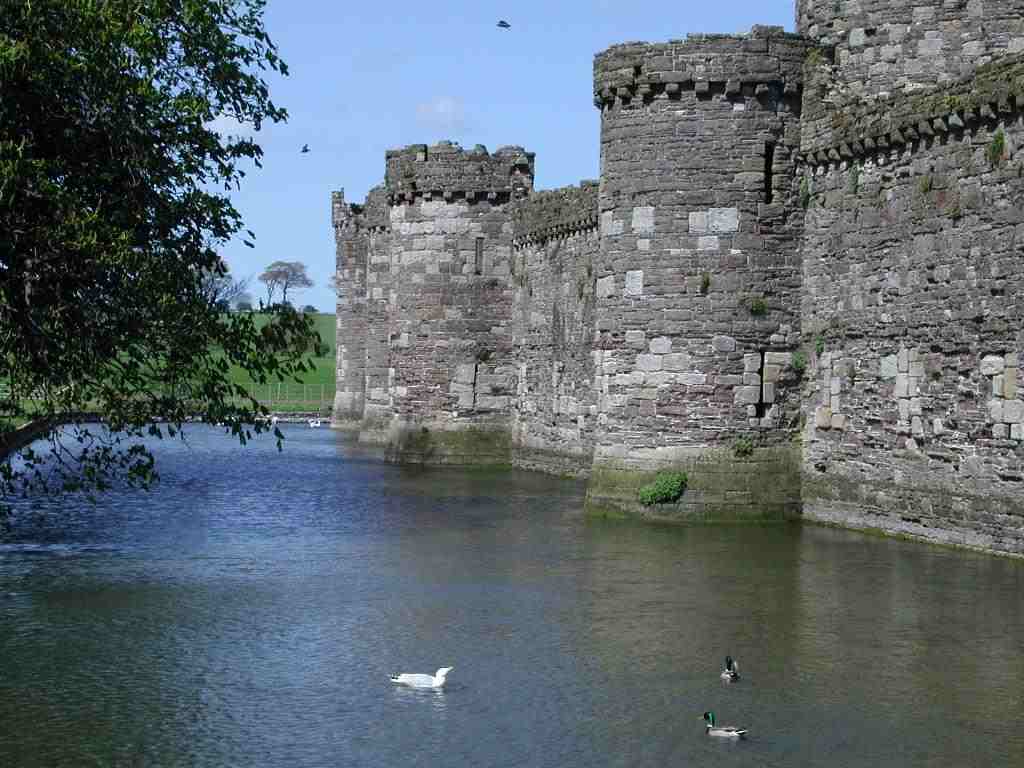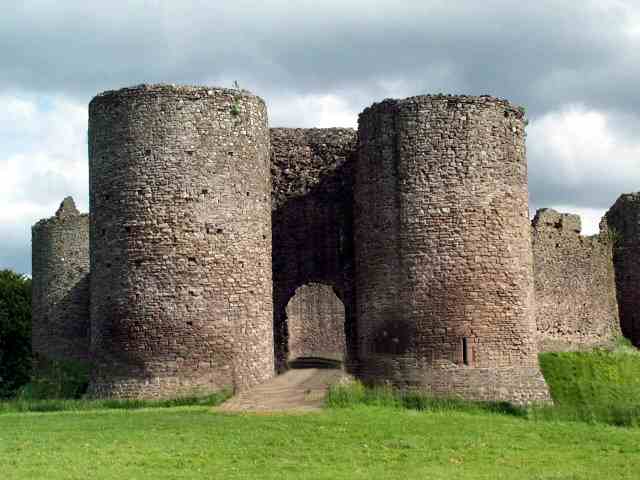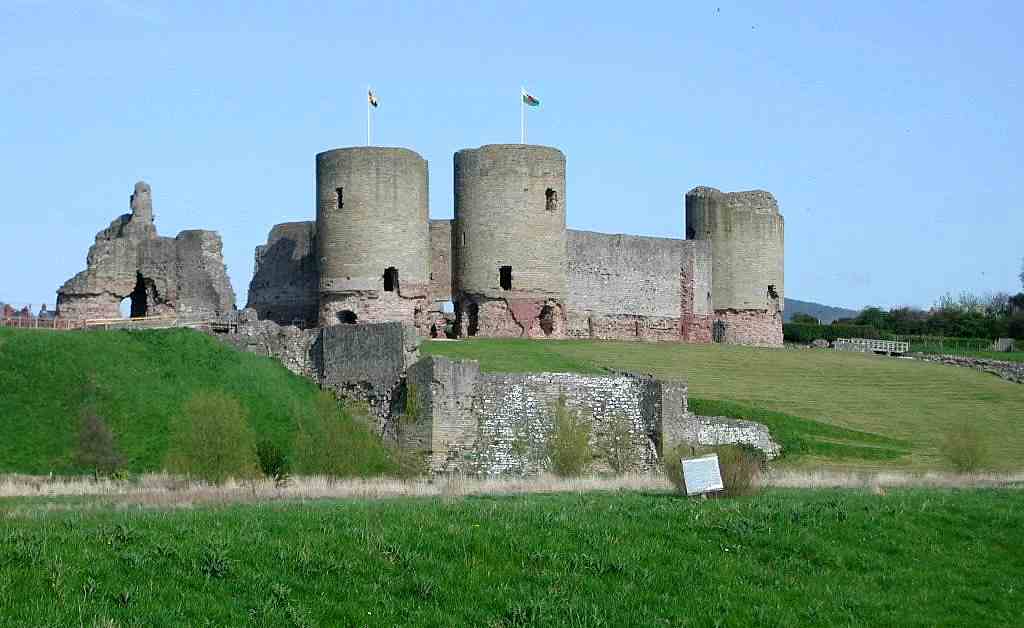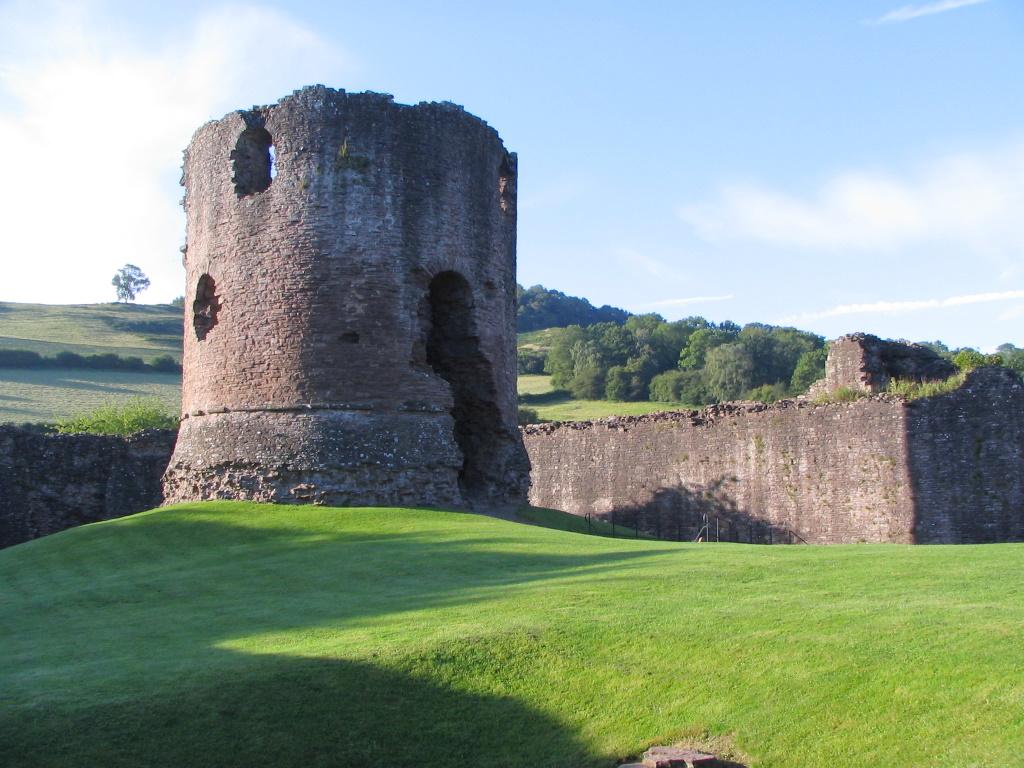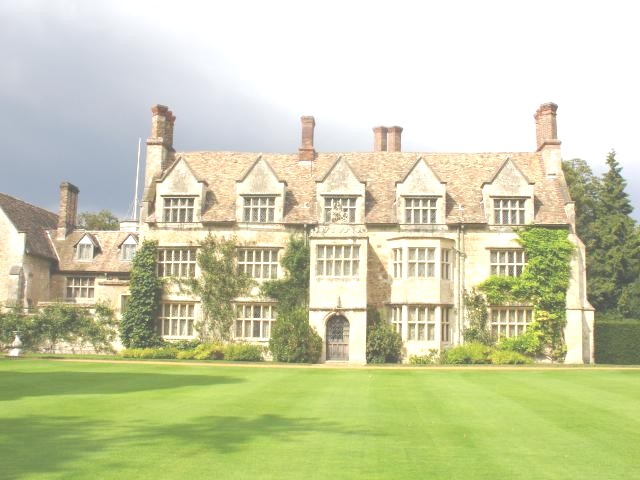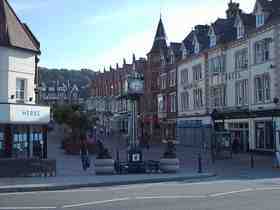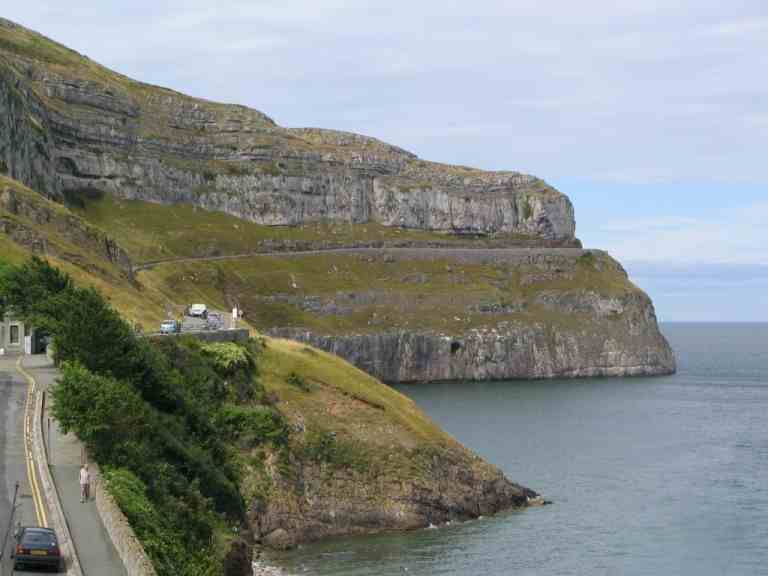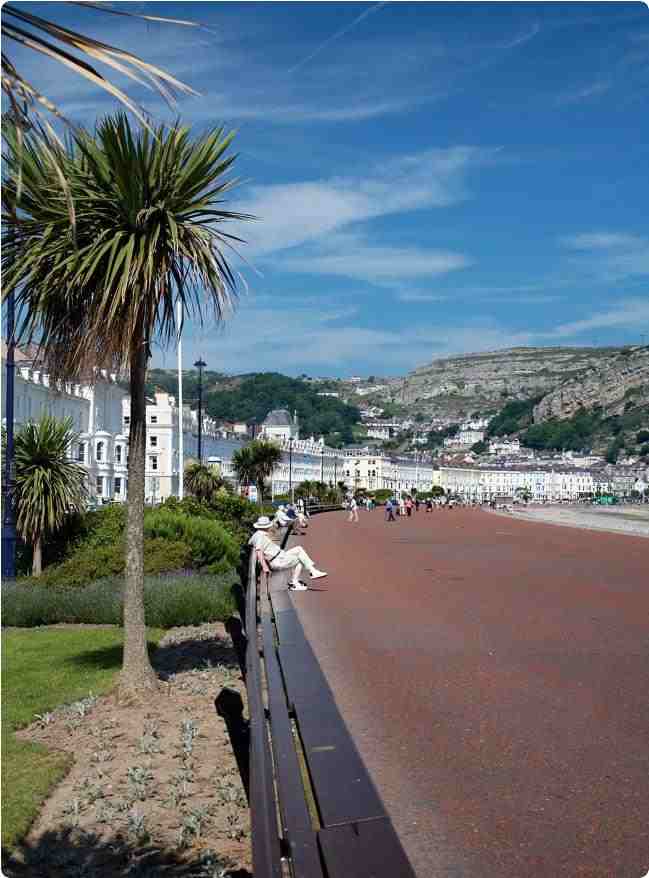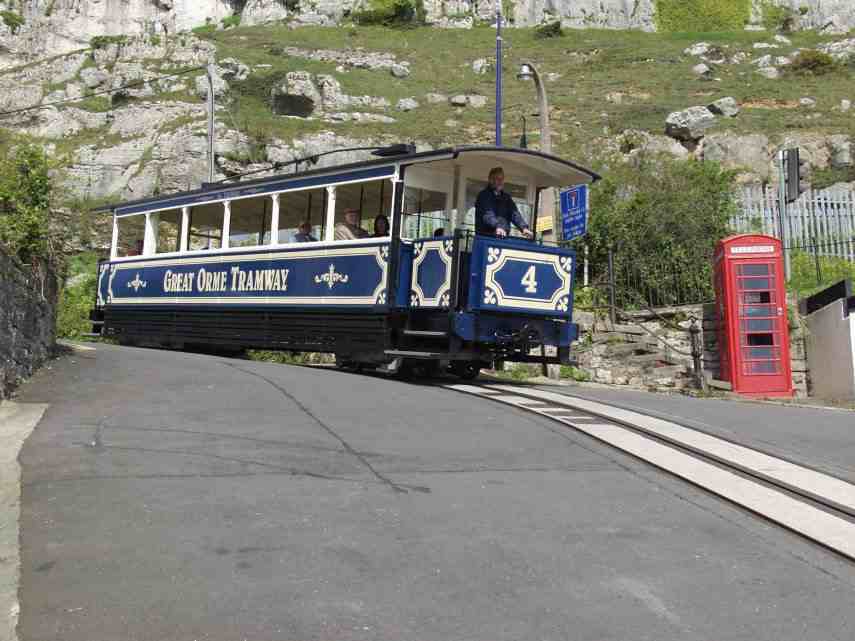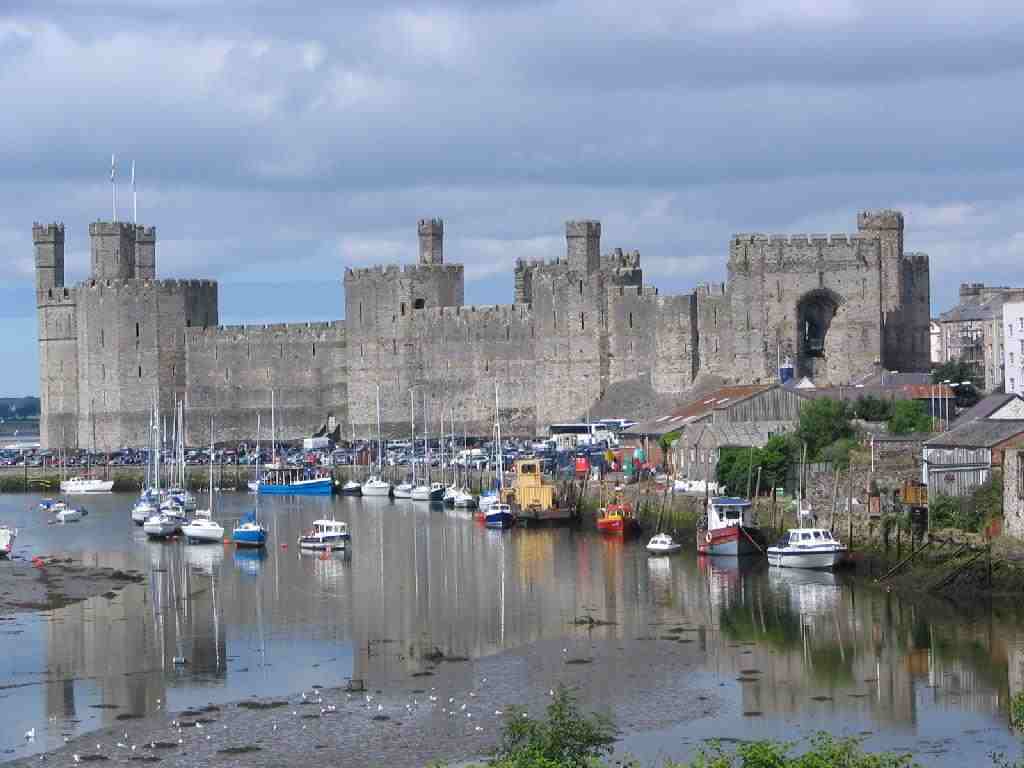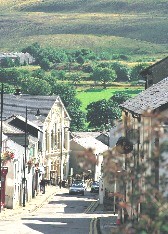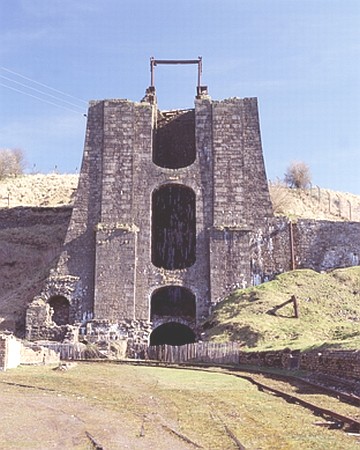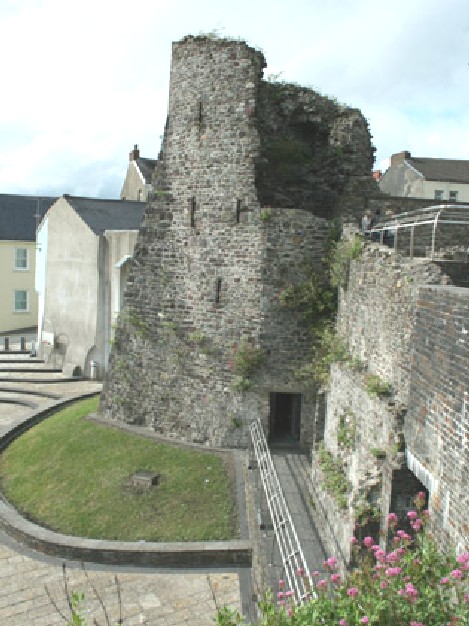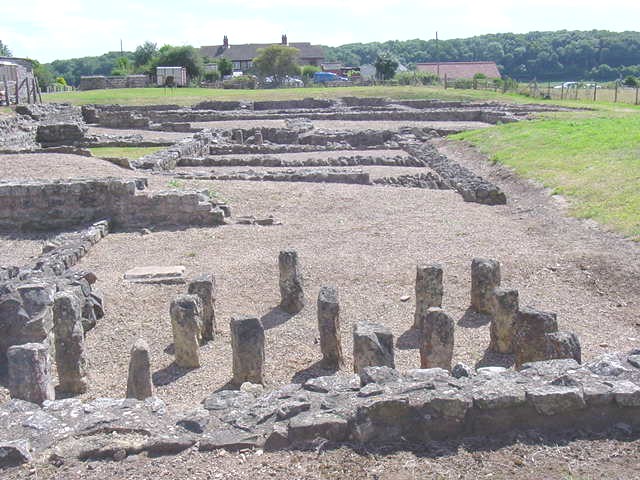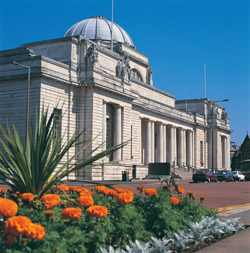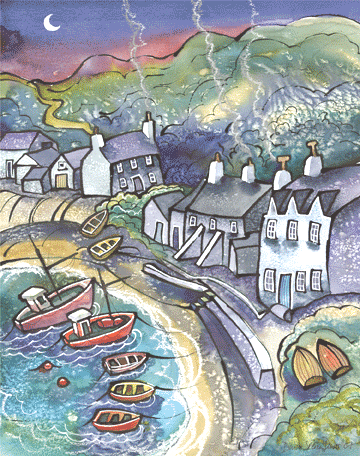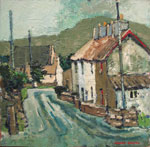The Theosophical Society,
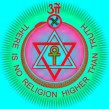
The Writings of Annie Besant
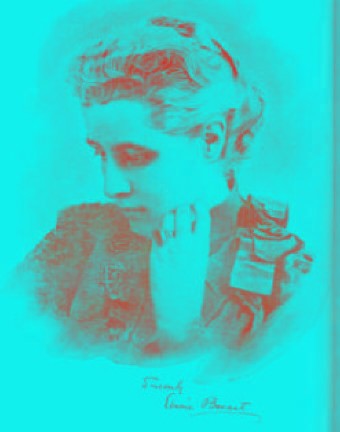
(1847 -1933)
The Destinies of Nations
From "The Theosophical Review,"
Volume XXXVII
Certain
great ideas, necessary for the evolution of the race, may be said to
belong
especially to the civilisations of the East, and those ideas were in
danger
of being trampled out by the advancing western civilisations. That was a
danger
to humanity at large, the ideals of both eastern and western
civilisations
being necessary in the future of the world; and it became
necessary
for some definite interference to take place to re-establish the
balance
of thought. I want to draw attention to the nature of that interference,
to
show what lies behind the destinies of nations, and what forces guide the
current
of affairs, so that we may see through the veil of events to the forces
that
guide them. The great world-drama is not written by the pen of chance, but
by
the thought of the LOGOS, guiding His world along the road of evolution. In
the
course of that evolution many beings are concerned. We have to look on this
world
as part of a chain of worlds all closely interlinked, all the inhabitants
of
these different worlds having something to say in those parts of the drama
which
are being worked out in each. We are all living in three different worlds,
and
not only in one; and whether in the physical world, or in the next world,
the
astral, or in the third, the heaven world, the inhabitants are busy with the
general
conduct of affairs which affect all three. Life becomes enormously more
interesting
when we recognise that it is shaped not only in the physical world
but
in other worlds as well, and that when we trace the destinies of nations we
find
that those destinies stretch backward, and that the working out in the
present
is largely conditioned by the energies of the past.
Let
us look for a moment on the rough plan of the whole. Let me put it as though it
were a great drama written by a divine pen. The story of the world, and the
various parts of the actors on the stage, are all therein written. What is not
laid
down is who the actors shall be, and with regard to this a large amount of
what
is called choice comes in. This drama is the manifestation of certain great
ideas
in the Divine Mind, ideas written, as it were, in the heavens; for it is
suggested
in very ancient thought that what we call the signs of the zodiac have
a
definite connection with the course of human affairs. Of that, in the broad
outline,
there is no doubt in the minds of any who have penetrated somewhat
behind
the veil. The importance of these starry influences cannot be
over-estimated;
for inasmuch as human beings are related in the composition of
their
physical and other subtler bodies to the worlds among which they move in
space,
there must be magnetic relations existing between them and the system of
which
they form a part, and at certain epochs in the history of evolution there
will
be one or another dominating influence present in the atmosphere in which
men
think and act, and they can no more escape that influence than their bodies
can
escape the influence of the far-off sun. The great drama, then, is the grand
plan
of human evolution. It is full of parts which are to be played by the
nations,
but not necessarily by this or that nation; for the nation qualifies
itself
to play a certain part which may be offered to more than one nation, and
one
or another may rise to the height of its great opportunity.
Leaving
that for a moment, let us ask a question as to the forces which help to
adapt
players to parts. Are there to be found, in what seems the great chaos of
human
wills, any guiding forces which bring the actor and the part together? You
cannot
well have a drama vast as the world-process, as evolution, and then a
great
gap between the Author of so vast a plan and the individual players who
make
up the nations and choose the parts. How is the right player to be brought
into
touch with his part in the history of the nation, in the history of
individual
successive births and deaths? That is the next point to grasp.
Now
the vast machinery for bringing together the parts and the players is found
in
the hierarchies of superhuman Intelligences recognised in all the religions
of
the world, and in the occult teaching on which they are founded. Not one
great
religion of the past or of the present that does not see surrounding the
world
and mingling in its affairs the vast hierarchies of spiritual
Intelligences
into whose hands is put the work of bringing together the players
and
the parts. You will see, if you turn to the religions of the nations of the
past,
how they have recognised these workings as playing a great part in the
practical
shaping of the destinies of nations. Not one great people of antiquity
that
did not have its own national "Gods."
The
word "Gods," however, as used in the English tongue, is very
confusing, for it is applied not only to those great hosts of Intelligences,
but also to the
Supreme,
the LOGOS, the Author of the drama. Now in the nations that have other religions
than the Christian this confusion does not arise. It is when the
Christian
is contemplating those whom he calls the "heathen" that the greatest
confusion
arises, for over the whole of their vast theology he uses the one name
"God."
And yet he might easily escape that by remembering that his own cosmogony is
only a reproduction of the older thoughts of these more ancient peoples. In the
East there is one name which is used for these Intelligences--the name
"Devas," from the root "div," to "shine" or to
"play"; the "shining ones," or the "playing
ones," would be the English translation. When Bunyan so often used the
term "shining ones" he was using a quite eastern phrase, for it is by
that
name
that the East knows this great hierarchy of Intelligences. Among the
Christians
and Mussulmans, whose religions are drawn largely from the Jewish,
the
name "Angel" is used, the terms "Angel," "
"Seraphim,"
and so on, being represented in the older faiths either by the word
"Deva"
or by a word derived therefrom. "God," in the Christian sense, is
known
by
other names, and no confusion arises.
In
all the old religions these Devas played an enormous part, and each nation
had
its own particular set of Devas. The Egyptians regarded certain superhuman
Intelligences
as their earliest law-givers, and the connection between the human
law-giver,
the Divine King, and the Deva is always clearly marked. Every
civilisation
takes its rise in a little group, partly human, partly superhuman,
to
which it looks back and from which it draws its laws. The Greek had his
Demigods
or Heroes, and his Gods or Devas. So among the Chinese, the Japanese, the
Persians, the Indians, the same idea is found of the nation being founded by
the group which contained the human law-giver and the Deva who worked with him
in the building of the nation. Celsus hints that the Beings "to whom was
allotted the office of superintending the country which was being legislated
for, enacted the laws of each land in co-operation with its legislators.
He
appears then to indicate that both the country of the Jews, and the nation
which inhabits it, are superintended by one or more beings . . . co-operated
with
Moses,
and enacted the laws of the Jews" (Origen. Con. Cel. V. xxv.).
Now
the Divine Kings, the Heroes, passed, but the Deva remains still at the head
of
each nation, a real existence in the astral and heavenly worlds, with a crowd
of
less developed Intelligences under his guiding hand. And when you come to the
Jews you find that idea very clearly laid down in their scriptures. I pause for
a
moment upon it, because the sentence I am going to take from the Old
Testament,
from Deuteronomy, gives exactly the idea which I want us to take in
considering
the working out of a nation's destinies: "When the Most High divided the
nations, when He dispersed the sons of Adam, He set the bounds of the people
according to the number of the angels of God; and the Lord's portion was his
people Jacob" (Deut. xxxii. 8, 9, Septuagint). To many modern readers the
latter part of that sentence, "the Lord," may sound surprising, for
they are accustomed to connect that word with the Supreme God; but we can see
from the whole of the sentence that it is the name "Most High" which
indicates the LOGOS, the manifested God, and He divides all the nations of the
world according to the number of the angels, and to one great angel, "the
Lord," He gives Jacob, Israel, as his peculiar portion. Origen, in dealing
with this, alludes to the "reasons relating to the arrangement of
terrestrial affairs," and points out
that
in Grecian history "certain of those considered to be Gods are introduced
as
having contended with each other about the possession of
writings
of the Greek poets also some who are called Gods are represented as
acknowledging
that certain places here are preferred by them before others"
(Con.
Cel. V. xxix.). And so he points out that after what he regards as the
symbolical
dispersion, at the building of the
nations
were given to these groups of celestial beings (Ibid. xxx.). These
beings
were worshipped in their respective nations, who followed their own
"Gods,"
and not those of other peoples (Ibid. xxxiv.).
This
idea of "the ministry of angels" is very general among the early
Christians;
thus we have in Hermas the vision of the building of a tower:
"And
I answering said unto her, These things are very admirable; but, lady, who
are
those six young men that build?
"They
are, said she, the angels of God, which were first appointed, and to whom the
Lord has delivered all his creatures, to frame and build them up, and to rule
over them. For by these the building of the tower shall be finished.
"And
who are the rest who bring them stones?
"They
also are the holy angels of the Lord; but the other are more excellent
than
these. Wherefore when the whole building of the tower shall be finished,
they
shall all feast together beside the tower, and shall glorify God, because
the
structure of the tower is finished" (lst Book of Hermas, Vision iii.,
43-46).
Clement (1st Epistle, xiii. 7) quotes the text above referred to. Also the
following
remark about Jesus, made by Satan to the Prince of Hell, is
noteworthy:
"As for me, I tempted him, and stirred up my old people the Jews
with
zeal and anger against him" (Gospel of Nicodemus, xv. 9). The Jews were
under
Saturn, or Jehovah, according to Origen. The same idea is taught among the
Mussulmans. They regard the angels as taking a very active part in the affairs
of
men. And it is hardly necessary to remind you that in the great epic poems of
affairs
of men, so that when great quarrels are to be decided they manifestly
take
part in the strife, each struggling for the particular tribe or nation
placed
in his hands for its evolution. A correspondent, Mr. Tudor Pole, of
Bristol,
tells me that there is an old Teutonic legend that on New Year's Eve
all
the "Inner Rulers," the angels, of the nations assemble before the
Council
of
the Gods to receive their orders for the coming year; each has his request to
make
as to the destiny of his nation during the coming year; the Council
arranges
the part that each nation shall play during the ensuing year, and the
Great
Lords are consulted. Finally, the Rulers disperse, some with music and
joy,
some weeping, some in great agony.
In
Greece there is much mingling of "Gods" and men, and the Greeks,
despite
their
philosophy, took the matter as real, not as fairy-tale, although the
philosophers
in Greece, as among the Hindus and Buddhists, did not worship these
"Gods." In the 7th book of the Odyssey we read how "Minerva
meets Ulysses, in the likeness of a young maiden bearing a pitcher," and
she guides him to the palace of Alcinous, a palace guarded, in Atlantean
fashion, by immortal gold and silver dogs, made by the mind of Vulcan. And so again
in many another tale, written when men's minds were less blinded thanthey are
to-day.
Of
course, in modern times this idea has disappeared, and it must seem like a
fairy
tale to modern readers when one brings such thoughts into touch with what
may
seem to them such much more real things, the strifes of Kings, and the
politics
of the modern world. And yet behind all these the co-ordinating forces
are
still continually at work; and when the time comes for a nation to play a
triumphant
part in the current history of the world, then, many years before the
time
of the triumph, there are guided into that nation by the Devas souls which
are
fitted for its building up and guidance in the coming struggle. And when the
time
comes for a nation to sink low in the current history of the world, there
are
guided to incarnation there souls that are weak, undeveloped, cruel,
tyrannical,
having fitted themselves to fill such actors' parts in the great
national
drama. Let us keep, then, that theory in mind: the drama on the one
side;
this great co-ordinating agency on the other, guiding the self-chosen
actors
to their appointed parts.
And
now let us look at some of the nations themselves, and see how far the
destinies
that they are working out fit in with this view of a guiding hand
behind
the veil. Let us take for one instance the building up of a mighty
western
empire, so that the great Fifth Race, with its evolution of the concrete
mind,
might play its part in the drama for the benefit of humanity at large. And
let
us see, if we can, whether certain definite currents may not be traced which
show
a plan definitely worked out, and not the mere mingling of the chaotic
wills,
ambitions, and selfishnesses of nations.
Slowly
was prepared this part of a nation to stand high above the nations of the
world.
The first nation to whom that part was offered was Spain, who had been
preparing
for it by a very marked and extraordinary evolution. Into her was
poured
the great flood of learning which linked itself with the dying philosophy
of
Greece, and drew its rich stores from the Neo-Platonic schools; into Southern
Spain came the great incursion from Arabia, rich with all the knowledge brought
from the mighty schools of Bagdad, which spread over Southern Spain and thence
over Europe. To her was sent Columbus, who made it possible for her to spread
her conquering troops across the Atlantic and subject the new world to her
imperial sceptre.
How
did Spain meet that wondrous opportunity? In the wake of Columbus came the
army, subjecting Mexico and Peru to her sway, and destroying
their
ancient civillsations, outworn and ready for destruction. She had laid
upon
her shoulders the task of building up in that new world a civilisation
based
on the solid foundation left there by Atlantis, capable of supporting the
structure
of the new thought and knowledge. All know how she missed her
opportunity,
how she drove out from her own country the Moors and the Jews, the
inheritors
of the knowledge, the philosophy, and the science; and how, in the
new
world, with her greed of gold, she cared nothing for the peoples placed in
her
hands but trampled them into the dust. So her part in the drama was taken
away
and offered to another people.
Another
nation became a candidate--a nation which, with many faults, had also
many
great virtues. England, spreading abroad her race, more and more subjected to
her sway land after land. She gained the offer of a world-empire by an act of
national righteousness--the liberation of the slaves from bondage, accompanied
by that great act of national justice which sacrificed no one class but placed
the burden of the liberation on the whole nation. For that, those who guided her
destinies were offered the possibility of world dominion. All the nations that
tried to establish themselves in that great land of the East, India, one after
another failed, until the English race placed its feet therein. The story of
the
placing
is not good to read, and many crimes were wrought, yet on the whole the nation
tried to do its best and to correct the oppressions wrought in
India--then
so out of reach--as witness her action towards her great pro-consul,
Warren
Hastings, when she brought him to trial for his evil deeds, in the face
of
the world.
So,
despite many faults, she was allowed to climb higher and higher in the eastern
world, partly also because she offered, with her growing colonies and language,
the most effective world-instrument for spreading the thought of the East over
the civilisations of the West. All know how far that has gone, how all over
Northern America, in far-off Australasia, as well as in her own land, eastern
thought and philosophy have everywhere penetrated, so that the treasures of
Sanskrit learning, kept so jealously until the time was ripe for their
dispersion, are being spread over the surface of the globe.
Continually,
by lessons ever repeated, those Higher Ones who guide the nation
are
striving to impress upon England the lesson that by righteousness alone can
a
nation be exalted in the long run And in a critical moment, when luxury was
growing
too enervating, too selfish, the terrible lesson of South Africa branded
on
the English conscience the lesson that duty and right must go before luxury.
Through
the fires of disaster a lesson was taught to England which, may God
grant,
she has learned for her future guidance.
And
then there came the question of what nation should be chosen for the work of
lifting up those ideals of the East of which I wrote last month. India, at this
stage
of the world's history, could not do the necessary service: she was
learning
her lessons under a conqueror; but there was a nation in the Far East
which
had within it the possibility of learning the lesson, and the Devas of the
nation
began to concern themselves with the attempt to train up in that far-off
island
a people who should be fit for the mighty task of uplifting eastern
thought,
of showing that conquest might go hand-in-hand with gentleness and
self-control,
and that a nation might spring into a mighty power without losing
its
sense of duty. The work began by a change in the education of the people,
which
might make a nation conscious of itself, and then into the soil thus
prepared
a group of heroic souls was born.
The
Mikado of Japan, a mighty soul, fit to incarnate for that nation its own
greatness,
fit to use such power that in brief space of years he might transform
the
nation, put it into new shape, evolved it in unknown forces, and at the same
time
showed out a personality so wonderful that all that nation look to him as
ruler
by Divine Right, from whose sacred person flow the powers which in the
nation
are shown forth, every triumph reflecting new glory on his personality.
And
round him gathers one great one after another, for the labour of raising up
the
nation, until at every point of importance you see a statesman, a general,
an
admiral, fit to lead a people from triumph to triumph. A group of strong
souls
is guided to incarnate there, in order that the nation may fulfil its
destiny;
for no nation can be great unless at the centre there be an ideal, and
a
perfect loyalty and self-devotion. It is no mere lip phrase, but voices a
feeling
deep in the heart of the soldier and of the general, when they thank
their
Ruler for the victory in the field, and with the eastern devotion say that
he
is the representative of God amongst them.
Glance
at the other nation in the great duel which is being fought in Eastern
Asia,
and see how strangely Russia, a nation with a great future before her, is
being
guided through the frightful valley of humiliation. The preparation for
that
calamitous part in the drama lies in that which has gone before, even
within
the limits of our own lives. There was a moment, some twenty-five or
thirty
years since, when a wondrous opportunity came in Russia's way. Although
ill-judged, there was a noble impulse underneath the freeing of the serfs, and
there was a possibility that that act might be turned to good purpose for the
nation, and raise it higher, instead of leading it wellnigh to destruction as
it has done. And then there came out of many souls born just then among the nobles
of Russia, one of the most wonderful things the world has seen--a flinging of
themselves out of their own rank down amongst the poor, the ignorant and the
down-trodden, a giving of themselves by the lads and the girls of the nobility
to the lifting up of the people, not by a far-off charity, but by a wondrous
impulse of uttermost self-sacrifice. And how was that met?
The
divine compassion of those youths and girls was met by the fortress of Peter
and Paul, by the mines, and deserts, and snows of Siberia. Nothing more
terrible has been wrought by a government of any people within modern times.
And terrible the Nemesis.
Driven
by despair, their attempts to uplift in all gentleness met with the knout
and
the underground dungeon, with starvation for the men, with dishonour for the
women,
what wonder some of them went mad! What wonder that some of them at last, after
years of patience, after cruellest sufferings, answered with the bomb to the
knout! This state of affairs was created in the first place by the
bureaucracy
and not by the victims. Thousands upon thousands of those who would have
redeemed Russia died on the scaffolds, were slaughtered in those frightful
mines, until at last the patience of the Gods grew exhausted, and the time came
for the government to learn that governments exist for the helping and not for
the crushing of their peoples.
So
that Russia chose by her past that terrible role which now she is playing on
the
stage of the world. Against her are all the forces that make for progress;
against
her from the astral world the myriads that she sent there before their
time--all
her martyrs, all her victims, are struggling against her. Hence the
record
of unexampled defeat. And at home, revolution, anarchy, assassination and mutiny
are threatening her government fabric from every side, until for Russia at the
moment there is only that Valley of the Shadow of Death to be trodden from end
to end; and with pain at heart, but with steady hands, her angelic guardians
guide her through the defeat and the disaster, willing that their
charge
should learn her lessons whatever the price she pays. For in those
clearer
eyes the nation s agony for the moment matters little, beside the
lessons
that through that agony are learned; and until the tyranny itself is
crushed,
and the rulers of Russia learn their duties to the people, she must
still
tread the winepress of the divine wrath.
And
see how Russia has been prepared for it. Among all her rulers not one strong
man; weakness and uncertainty everywhere, changed policy at every moment. Mark
the government of him who should be the father, but is the tyrant, of his
people--perhaps not a bad man in himself, but utterly unfit for his post. It is
part of the destiny of a nation that, when the hour of its doom strikes,
nothing
but
weakness is born into its governing classes, so that those who would not
rule
aright may lose the power to rule. And on those terrible battlefields of
which
we have read records in the daily press, is there anything more pathetic
than
the dauntless courage of the soldiers, and the hopeless incompetence of the
officers?
It is not that the soldiers do not fight, but that they are led by men
who
know not how to lead.
It
is thus that nations are guided from above, and into the nation that has to
go
downward those are guided who inevitably drag it downwards. The same was the
case in Spain--a child King, and not one able man among the ministers who could
guide it right in the struggle with Cuba and America.
And
how are these leaders chosen? The are chosen by their own lives in the past. A
man is found unselfish, brave, and noble, and such a one, in the countless
choices of his daily life, is making the choice for the splendid part that
hereafter
in humanity he shall play. And so with those who are great outside,
but
have to play a sordid part. By countless selfishness and preferring of
themselves,
by taking ever that lower path instead of the higher, those men
choose
also their parts in history.
Thus
it is that the Occultist looks on human history, and sees preparing around
him
on every side the men and women who are to be the players of the future in
the
more prominent parts of the world-drama. For none forces upon us any part,
nor
imposes upon us any special place in the world-drama. We choose for
ourselves.
We build up ourselves for glory or for shame, and as we build so
hereafter
shall we inevitably be. Hence it follows that for a nation to be great
its
citizens must slowly build up greatness in themselves. Hence it is that the
greatness
that you see now in Japan is a greatness that you can recognize among
her
ordinary men and women, who are willing to sacrifice all that is dearest for
the
sake of their country and the glory of their chief.
And
so with England, if she would fill the mighty part which is before her in
the
near future. She must build up her sons and daughters on heroic models, by
placing
righteousness above luxury, thought above enjoyment; by choosing the
strenuous,
the heroic, the self-sacrificing in daily life, and not petty
enjoyments,
small luxuries, and miserable sensual gratifications. Out of rotten
bricks
no great building can be built, and out of poor material no mighty nation
may
be shaped. The destinies of nations lie in the homes of which the nations
are
composed, and noble men, women and children have in them the promise of the
future national greatness. And as we make our conditions better, higher and
more evolved souls shall be born amongst us. While we have slums and miserable
places we are making habitations for little evolved souls, whom we draw into
the nation.
Under
the ground the root grows, out of which the flower and fruit will come, and
poor the gardening science which places a rotten root in the ground and expects
from it a perfect flower and a splendid fruit. If we would have
England
great among the nations and make her destiny an imperial destiny as the
servant
of humanity at large, we must cultivate the soil of character, plant the
sound
roots of noble, righteous, simple living, and then the destiny is
inevitable,
and the nation will be cast for an imperial part in the drama of the
world.
History
of the Theosophical Society
Theosophical Society Cardiff
Lodge
Cardiff Theosophical Archive
The Theosophical Society,
Cardiff Lodge, 206 Newport Road, Cardiff CF24 – 1DL
For more info on Theosophy
Try these
Dave’s Streetwise Theosophy
Boards
Cardiff
Lodge’s Instant Guide to Theosophy
One
Liners & Quick Explanations
The
Most Basic Theosophy Website in the Universe
If you run a Theosophy Group
you can use
this as an introductory
handout
Helena Petrovna Blavatsky 1831 – 1891
The Founder of Modern Theosophy
Index of Articles by
By
H P Blavatsky
Is the Desire to Live Selfish?
Ancient Magic in Modern Science
Precepts Compiled by H P Blavatsky
Obras Por H P Blavatsky
En Espanol
Articles about the Life of H P Blavatsky
Try these if you are
looking for a local group
UK Listing of
Theosophical Groups
Worldwide
Directory of Theosophical Links
Nature is infinite in space and
time -- boundless and eternal, unfathomable and ineffable. The all-pervading
essence of infinite nature can be called space, consciousness, life, substance,
force, energy, divinity -- all of which are fundamentally one.
2) The finite and the infinite
Nature is a unity in
diversity, one in essence, manifold in form. The infinite whole is composed of
an infinite number of finite wholes -- the relatively stable and autonomous
things (natural systems or artefacts) that we observe around us. Every natural
system is not only a conscious, living, substantial entity, but is
consciousness-life-substance, of a particular range of density and form.
Infinite nature is an abstraction, not an entity; it therefore does not act or
change and has no attributes. The finite, concrete systems of which it is
composed, on the other hand, move and change, act and interact, and possess
attributes. They are composite, inhomogeneous, and ultimately transient.
3)
Vibration/worlds within worlds
The one essence manifests not
only in infinitely varied forms, and on infinitely varied scales, but also in
infinitely varying degrees of spirituality and substantiality, comprising an
infinite spectrum of vibration or density. There is therefore an endless series
of interpenetrating, interacting worlds within worlds, systems within systems.
The energy-substances of
higher planes or subplanes (a plane being a particular range of vibration) are
relatively more homogeneous and less differentiated than those of lower planes
or subplanes.
Just as boundless space is
comprised of endless finite units of space, so eternal duration is comprised of
endless finite units of time. Space is the infinite totality of worlds within
worlds, but appears predominantly empty because only a tiny fraction of the
energy-substances composing it are perceptible and tangible to an entity at any
particular moment. Time is a concept we use to quantify the rate at which
events occur; it is a function of
change and motion, and
presupposes a succession of cause and effect. Every entity is extended in space
and changes 'in time'.
All change (of position,
substance, or form) is the result of causes; there is no such thing as absolute
chance. Nothing can happen for no reason at all for nothing exists in
isolation; everything is part of an intricate web of causal interconnections and
interactions. The keynote of nature is harmony: every action is automatically
followed by an equal and opposite reaction, which sooner or later rebounds upon
the originator of the initial act. Thus, all our thoughts and deeds will
eventually bring us 'fortune' or 'misfortune' according to the degree to which
they were harmonious or disharmonious. In the long term, perfect justice
prevails in nature.
Because nature is
fundamentally one, and the same basic habits and structural, geometric, and
evolutionary principles apply throughout, there are correspondences between
microcosm and macrocosm. The principle of analogy -- as above, so below -- is a
vital tool in our efforts to understand reality.
All finite systems and their
attributes are relative. For any entity, energy-substances vibrating within the
same range of frequencies as its outer body are 'physical' matter, and finer
grades of substance are what we call energy, force, thought, desire, mind,
spirit, consciousness, but these are just as material to entities on the
corresponding planes as our physical world is to us. Distance and time units
are also relative: an atom is a solar system on its own scale, reembodying perhaps
millions of times in what for us is one second, and our whole galaxy may be a
molecule in some supercosmic entity, for which a million of our years is just a
second. The range of scale is infinite: matter-consciousness is both infinitely
divisible and infinitely aggregative.
All natural systems consist
of smaller systems and form part of larger systems. Hierarchies extend both
'horizontally' (on the same plane) and 'vertically' or inwardly (to higher and
lower planes). On the horizontal level, subatomic particles form atoms, which
combine into molecules, which arrange themselves into cells, which form tissues
and organs, which form part of organisms, which form part of ecosystems, which
form part of planets, solar systems, galaxies, etc. The constitution of worlds
and of the organisms that inhabit them form 'vertical' hierarchies, and can be
divided into several interpenetrating layers or elements, from physical-astral
to psychomental to spiritual-divine, each of which can be further divided.
The human constitution can be
divided up in several different ways: e.g. into a trinity of body, soul, and
spirit; or into 7 'principles' -- a lower quaternary consisting of physical
body, astral model-body, life-energy, and lower thoughts and desires, and an
upper triad consisting of higher mind (reincarnating ego), spiritual intuition,
and inner god. A planet or star can be regarded as a 'chain' of 12 globes, existing
on 7 planes, each globe comprising several subplanes.
The highest part of every
multilevelled organism or hierarchy is its spiritual summit or 'absolute',
meaning a collective entity or 'deity' which is relatively perfected in
relation to the hierarchy in question. But the most 'spiritual' pole of one
hierarchy is the most 'material' pole of the next, superior hierarchy, just as
the lowest pole of one hierarchy is the highest pole of the one below.
Each level of a hierarchical
system exercises a formative and organizing influence on the lower levels
(through the patterns and prototypes stored up from past cycles of activity),
while the lower levels in turn react upon the higher. A system is therefore
formed and organized mainly from within outwards, from the inner levels of its
constitution, which are relatively more enduring and developed than the outer
levels. This inner guidance is sometimes active and selfconscious, as in our
acts of free will (constrained, however, by karmic tendencies from the past),
and sometimes it is automatic and passive, giving rise to our own automatic
bodily functions and habitual and instinctual behavior, and to the orderly,
lawlike operations of nature in general. The 'laws' of nature are therefore the
habits of the various grades of conscious entities that compose reality,
ranging from higher intelligences (collectively
forming the universal mind) to elemental nature-forces.
10) Consciousness and its vehicles
The core of every entity --
whether atom, human, planet, or star -- is a monad, a unit of consciousness-life-substance,
which acts through a series of more material vehicles or bodies. The monad or
self in which the consciousness of a particular organism is focused is animated
by higher monads and expresses itself through a series of lesser monads, each
of which is the nucleus of one of the lower vehicles of the entity in question.
The following monads can be distinguished: the divine or galactic monad, the
spiritual or solar monad, the higher human or planetary-chain monad, the lower
human or globe monad, and the animal, vital-astral, and physical monads. At our
present stage of evolution, we are essentially the lower human monad, and our
task is to raise our consciousness from the animal-human to the spiritual-human
level of it.
Evolution means the
unfolding, the bringing into active manifestation, of latent powers and
faculties 'involved' in a previous cycle of evolution. It is the building of
ever fitter vehicles for the expression of the mental and spiritual powers of
the monad. The more sophisticated the lower vehicles of an entity, the greater
their ability to express the powers locked up in the higher levels of its
constitution. Thus all things are alive and conscious, but the degree of
manifest life and consciousness is extremely varied.
Evolution results from the
interplay of inner impulses and environmental stimuli. Ever building on and
modifying the patterns of the past, nature is infinitely creative.
12) Cyclic evolution/re-embodiment
Cyclic evolution is a
fundamental habit of nature. A period of evolutionary activity is followed by a
period of rest. All natural systems evolve through re-embodiment. Entities are
born from a seed or nucleus remaining from the previous evolutionary cycle of
the monad, develop to maturity, grow old, and pass away, only to re-embody in a
new form after a period of rest. Each new embodiment is the product of past
karma and present choices.
Nothing comes from nothing:
matter and energy can be neither created nor destroyed, but only transformed.
Everything evolves from preexisting material. The growth of the body of an
organism is initiated on inner planes, and involves the transformation of higher
energy-substances into lower, more material ones, together with the attraction
of matter from the environment.
When an organism has
exhausted the store of vital energy with which it is born, the coordinating
force of the indwelling monad is withdrawn, and the organism 'dies', i.e. falls
apart as a unit, and its constituent components go their separate ways. The
lower vehicles decompose on their respective subplanes, while, in the case of
humans, the reincarnating ego enters a dreamlike state of rest and assimilates
the experiences of the previous incarnation. When the time comes for the next
embodiment, the reincarnating ego clothes itself in many of the same atoms of
different grades that it had used previously, bearing the appropriate karmic
impress. The same basic processes of birth, death,
and rebirth apply to all entities, from atoms to humans to stars.
14)
Evolution and involution of worlds
Worlds or spheres, such as
planets and stars, are composed of, and provide the field for the evolution of,
10 kingdoms -- 3 elemental kingdoms, mineral, plant, animal, and human
kingdoms, and 3 spiritual kingdoms. The impulse for a new manifestation of a
world issues from its spiritual summit or hierarch, from which emanate a series
of steadily denser globes or planes; the One expands into the many. During the
first half of the evolutionary cycle (the arc of descent) the energy-substances
of each plane materialize or condense, while during the second half (the arc of
ascent) the trend is towards dematerialization or etherealization, as globes
and entities are reabsorbed into the spiritual hierarch for a period of nirvanic
rest. The descending arc is characterized by the evolution of matter and
involution of spirit, while the ascending arc is characterized by the evolution
of spirit and involution of matter.
In each grand cycle of
evolution, comprising many planetary embodiments, a monad begins as an
unselfconsciousness god-spark, embodies in every kingdom of nature for the
purpose of gaining experience and unfolding its inherent faculties, and ends
the cycle as a self conscious god. Elementals ('baby monads') have no free
choice, but automatically act in harmony with one another and the rest of
nature. In each successive kingdom differentiation and individuality increase,
and reach their peak in the human kingdom with the attainment of
selfconsciousness and a large measure of free will.
In the human kingdom in
particular, self-directed evolution comes into its own. There is no superior
power granting privileges or handing out favours; we evolve according to our
karmic merits and demerits. As we progress through the spiritual kingdoms we
become increasingly at one again with nature, and willingly 'sacrifice' our
circumscribed selfconscious freedoms (especially the freedom to 'do our own
thing') in order to work in peace and harmony with the greater whole of which
we form an integral part. The highest gods of one hierarchy or world-system
begin as elementals in the next. The matter of any plane is composed of
aggregated, crystallized monads in their nirvanic sleep, and the spiritual and
divine entities embodied as planets and stars are the electrons and atomic
nuclei -- the material building blocks -- of worlds on even larger scales.
Evolution is without beginning and without end, an endless adventure through
the fields of infinitude, in which there are always new worlds of experience in
which to become selfconscious masters of life.
There is no absolute
separateness in nature. All things are made of the same essence, have the same
spiritual-divine potential, and are interlinked by magnetic ties of sympathy.
It is impossible to realize our full potential, unless we recognize the
spiritual unity of all living beings and make universal brotherhood the keynote
of our lives.
Hey Look! Theosophy in
Cardiff
Cardiff Theosophical Society
in Wales
Cardiff, Wales, UK. CF24 – 1DL
_________________
Wales Picture Gallery
The
Great Orme
Llandudno
Promenade
Great
Orme Tramway
New
Radnor
Blaenavon
Ironworks
Llandrindod
Wells
Cardiff Theosophical Society
in Wales
Cardiff, Wales, UK. CF24 – 1DL
Presteign
Railway
Caerwent Roman Ruins
Denbigh
Nefyn
Penisarwaen
Cardiff Theosophical Society
in Wales
Cardiff, Wales, UK. CF24 – 1DL

